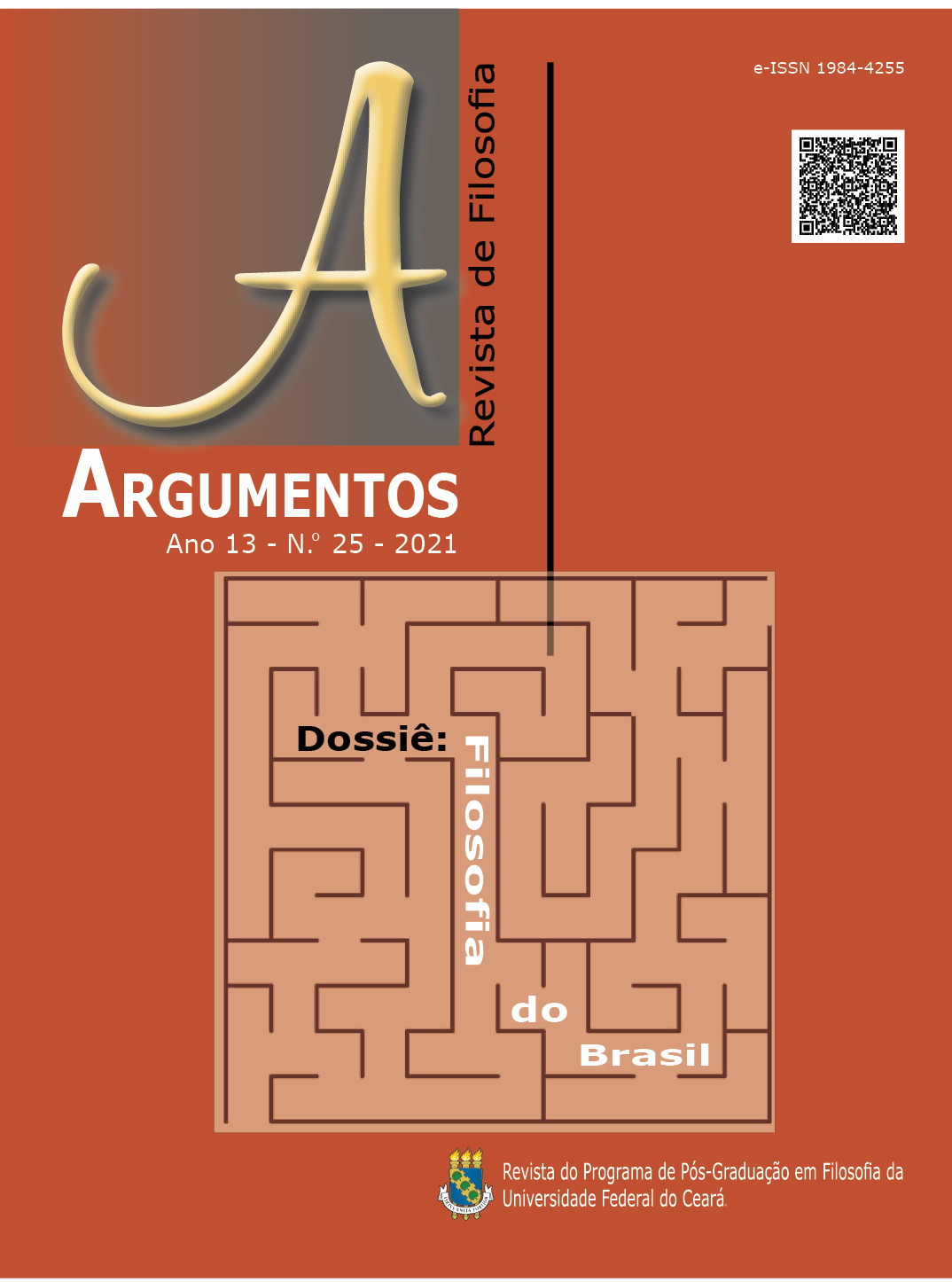Intimate connections between music, education and play in Plato’s dialogues
DOI:
https://doi.org/10.36517/Argumentos..25.44076Keywords:
Ludicity. Philosophy. Art. Formation. Science.Abstract
By revisiting important hermeneutic aspects of platonic philosophy, this article aims to provide an orientation with regard to the cultural fecundity of certain reintegrations of three types of human activity, among which solid barriers have been often pursued recently: play, education and music. This text is exposed in two parts, where the first part comprises points of balance between the concept of play and education, while the second part examines and interprets the paradox of fight in philosophy and poetry in Plato’s Dialogues, from an enhancement of the notion of music. The agreement between the two parts resides on the ludic and educational bases of ancient poetry and philosophy. Finally, for the purpose of the conclusion, a general orientation is proposed as the synthesis of the conjectures, argumentations, and demonstrations under the light of the example of Plato’s work.
Downloads
References
HUIZINGA, J. Homo Ludens: o jogo como elemento da cultura. 5ª ed. São Paulo: Perspectiva, 2008.
JAEGER, W. W. Paideia: a formação do homem grego. 3ª. ed. São Paulo: Martins Fontes. 1994
KANT, I. Sobre a pedagogia. 2. ed. revisada. Piracicaba: Unimep, 1999.
PLATÃO. A república. São Paulo: Difusão Européia do Livro, 1965. (Coleção Clássicos Garnier).
PLATÃO. Diálogos: O Banquete, Fédon, Sofista, Político. São Paulo: Abril Cultural, 1972.
ROHDEN, H. O homem. São Paulo: Alvorada Editora, 1983.
SANTO AGOSTINHO. De magistro. Edição Bilíngue. Campinas, SP: CEDET, 2017.
SCHILLER, F. A educação estética do homem: numa série de cartas. São Paulo: Iluminuras, 2017.
Downloads
Published
How to Cite
Issue
Section
License
Argumentos magazine is licensed under an International Creative Commons Attribution License.
The Magazine uses CC BY inclusion
1) The authors retain the copyright granted to the magazine or the right to initial publication, with the work regularly licensed under the Creative Commons Attribution, which allows the sharing of the work with acknowledgment of authorship and initial publication in this magazine.
2) The authors are authorized to contract additional applicable contracts, for non-exclusive distribution of the version of the work published in this journal (for example, publication in the institutional repository or as a chapter of the book), recognition of authorship and initial publication in this journal.
3) Authors are authorized and encourage to publish and distribute their work online (for example, in institutional repositories or on their personal pages) at any time before or during the editorial process, as they can generate productive changes, as well as increase the impact and reference of published work.




.jpg)










._._3.png)
1.jpg)
._._._.png)
